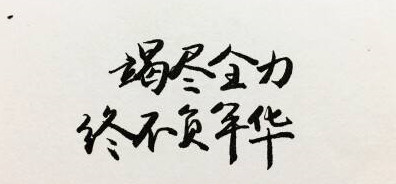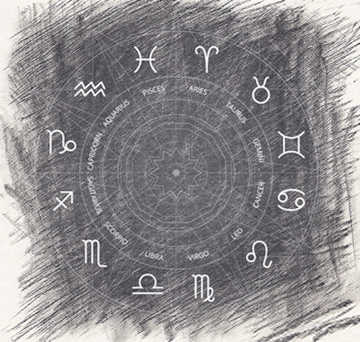 摘要:
辨析:border,boundary,frontier我只讲意思相近的解释。frontier-未开拓领域的边界线,示意未开发的疆土。border-两区或两国之间的界线,即:边界。b...
摘要:
辨析:border,boundary,frontier我只讲意思相近的解释。frontier-未开拓领域的边界线,示意未开发的疆土。border-两区或两国之间的界线,即:边界。b... 辨析:border, boundary, frontier
我只讲意思相近的解释。
frontier - 未开拓领域的边界线,示意未开发的疆土。
border - 两区或两国之间的界线,即:边界。
boundary - 有限制性意义的界线,延伸为边界线。字根是bound,围绕的意思。
金山词霸中的参考资料:
boundary, border, frontier, limit
These nouns all denote a line or an area separating one piece of territory from another. A
所有这些名词都指分隔一地域与另一地域的线或地区。
boundary is a limiting line:
boundary 是限制线:
A stone wall marked the boundary between the two farms. A
石墙是两个农场的分界线。
border is a line that separates political entities:
Border 是将政治实体分离的界限:
Customs officers inspected our luggage when we crossed the border.
当我们过境时海关官员检查了我们的行李。
Frontier denotes the part of a country that faces toward or fronts an adjoining country:
Frontier 意指一国中朝向或面对邻国的部分:
“that long [Canadian] frontier from the Atlantic to the Pacific Oceans, guarded only by neighborly respect and honorable obligations” (Winston S. Churchill).
“那条 自大西洋至太平洋的长边界线, 仅出于邻国的尊敬和高尚义务守护着” (温斯顿·S·丘吉尔)。
Limit denotes a boundary that surrounds an area:
Limit 意指包围一地区的界线:
Cars cannot exceed 35 miles per hour within city limits.
在市区线以内车速不能超过每小时35英里
车线用英语怎么说
车线
[词典] thread; stitching;
[例句]车线不直或车线移位,缝入邻近的部门;
Stitching not straight or running into adjoining panels
hippo中文是什么?
英文单词:hippo
翻译中文意思|用法|音标|
hippo: [ 'hip?u ]
n. 河马
词形变化:
名词复数:hippos
例句与用法:
1. Let's see? There're hippos, tigers, lions, ostriches, peacocks, camels, donkeys, wolves, foxes, deer...
让我看看,有河马,老虎,狮子,驼鸟,孔雀,骆驼,驴,狼,狐狸,鹿。。。
英英解释:
名词hippo:
1. an ancient Numidian town in northwestern Africa adjoining present-day Annaba in northeastern Algeria
同义词:Hippo Regius
2. massive thick-skinned herbivorous animal living in or around rivers of troal Africa
同义词:hippopotamus, river horse, Hippopotamus amphibius
UBC是什么意思
全称:University of British Columbia
中文翻译:加拿大英属哥伦比亚大学
官网介绍
About UBC
Only 30 minutes from the heart of downtown Vancouver, the University of British  Columbia holds an international reputation for excellence in advanced research and learning.
Columbia holds an international reputation for excellence in advanced research and learning.
The spectacular UBC campus is a 'must-see' for any visitor to the city -- where snow-capped mountains meet ocean, and breathtaking vistas greet you around every corner.
The university boasts some of the city's best attractions & recreation facilities, including the Museum of Anthropology, the Chan Centre for the Performing Arts, the UBC Botanical Garden and Centre for Plant Research, and endless opportunities to explore forested trails in the adjoining 763-hectare Pacific Spirit Regional Park.
参考资料:
catch与follow的区别
差别还是挺大的,前者的目的是追上或抓住,后者是保持一定距离尾随
catch
[k?t?; k?t?]
(caught[ek)t; k):t])
及物动词
1 a. (追) 捕,捕捉,逮捕
~ a thief
逮捕小偷
Cats ~ mice.
猫捉老鼠
He has been caught several times for speeding.
他因超速已被抓了好几次
b. [用陷阱、网等] 捕捉[…][in]
The rat was caught in a trap.
那只老鼠被捕鼠器 [陷阱] 捉住了
2 a. (在中途) 接住 <被扔出的东西>
~ a ball
接住球,接球
b. 接住球使<打击者>出局
3 a. (突然或用力地) 抓住,握住<手脚等>
She caught his one in the eye.
她在他眼睛上打了一下
b. 抓住<某人> [手脚等] [by]
~ a person by the arm
抓住某人的手臂
He caught me by the collar.
他抓住我的衣领
4 a. 撞见<某人><在做…>
I caught the boy stealing fruit from our orchard.
我撞见那个男孩在偷我们果园里的水果
You'll never ~ me doing that!. (
美口语)你绝对看不到我做那种事 ! 我决不做那种事!
b. 发现<某人> (在做…) ; <某人> (在做…时) 突然被发现 [撞见]
He was caught in the act.
他当场被捉住 [是现行犯]
Mother caught me just as I was leaving the house.
我正要出门时突然被我母亲撞见
5 a. <钉子、衣服等> 钩住,缠住,绊住
A nail caught her dress.
钉子钩住她的衣服
b. 把…挂在 [钉子上] ; 使…绊 [缠] 住[衣服],使…夹在 [二物之间] [on,in,between]
She caught her coat on a hook.
她的外套给 (钩子) 钩住了
I caught my foot on a leg of the table.
我的 (被桌) 绊到了
He caught his fingers in the door.
他的手指被门夹到了
My bicycle got caught between two cars.
我的脚踏车被夹在两辆汽车之间
6
a. 著<火>
Paper ~es fire easily.
纸容易著火
b. 感染 [罹患] <疾病>
~ (a) cold
感冒
~ a disease (
因感染而) 患病
7
a. <暴风雨等>袭击<人>
We were caught in a shower.
我们遇到骤雨 [为骤雨所困]
b. 突袭
~ the enemy unawares
冷不防地突袭敌人
8 a. <掉落物、打击等> 击中<某人>[身体的某部位][on, in]
A stone caught me on the nose.
石头打中了我的鼻子
The bullet caught the captain in the throat.
子弹射中了队长的喉咙
b. 给予<某人><打击>; 给予<某人>[打击][with]
I caught him one on the jaw. = I caught him on the jaw with an
uppercut.我以上钩拳打了他的下巴一拳
9 来得及,赶上
(←→ miss)
~ the train [bus]
赶上火车[公共汽车]
~ the mail [post]
赶上收邮件的时间
10
a. 引起 <人的注意等>
Beauty ~es the eye.
漂亮的东西引人注目
The lady tried to ~ my attention.
那位女士想要引起我的注意
b. 吸引<视线>
I couldn't ~ the waiter's eye for some time.
有一阵子我无法吸引服务生的视线 [我不能使服务生注意到我]
11
a. 听懂,了解,领悟
I could not ~ what he said.
我听不懂他说什么
b. <感觉> 感受到
He caught the smell of something burning.
他闻到有东西烧焦的气味
→catch GLIMPSE of.
不及物动词
1
a. 想抓住[…][at]
A drowning man will ~ at a straw. (.
谚)即将溺毙的人连一根草也想抓住(慌不择路)
b. (迫不及待地) 抓住[机会],接受[提议][at]
~ at a good chance
抓住一个好机会
2 a. <锁等> 锁住
Did the lock [anchor] ~?.
锁 [锚] 锁牢 [钩住] 了吗?
b. 挂[在…上]; 绕 [绊,缠] 上[…][on, in]
My sleeve has caught on a nail [in the door].
我的袖子被钉子钩住 [被门夹住] 了
3 a. 著<火>; <东西>著火,烧著
The flames caught the adjoining house.
火延烧到隔壁
Tinder ~es easily.
火绒 [火种] 容易著火
b. <引擎等>起动,发动
It took several minutes before the engine caught.
隔了好几分钟引擎才发动起来
4‘棒球’担任捕手
catch it [
常用于未来式] (口语)挨骂,受罚
You'll ~ it from your teacher.
你会受到老师的责骂
catch on
(1) 受欢迎,流行,风行
The play caught on well.
那场戏很快受到欢迎
(2) 明白[…的]意思,领会[…][to]
I don't ~ on to what you're driving at.
我不明白你想要做[说]什么
catch out
(1) → v.t. 2b
(2) 看出 [发觉] <某人>的错误,使<人>无法回答问题
John was caught out.
约翰的错误被发觉了
The examiner tried to ~ the students out with a difficult question.
考试官企图以难题考倒学生们
(3) 识破 [看出] <某人> [虚伪,谎言等] [in]
The policemanr caught Eddie out in a lie.
警察识破艾迪的谎言
catch up
(1) 急忙拿 [举] 起…
She caught up her purse and ran out.
她急忙拿起手提包跑出去
(2) 追上<某人>
He has gone so far we cannot ~ him up.
他已走得那么远,我们追不上
(3) 使<人>热衷[于…],使<人>[对…]入迷; 使<人>受
--------------------------------------------------------------
follow
fol.low
[`fɑlo, -?; ˋf?lou]
及物动词
1 a. 跟随…去[来],跟在…后面; 伴随…
~ a person out [in, home]
跟随某人出去 [进入,回家]
Please ~ me.
请跟我来
I ~ed the crowd into the stadium.
我跟著群众进入运动场
The doctor was ~ed by a number of nurses.
医师后面跟著许多护士
b. 追<某人等>; 追赶; 跟踪; 追求
~ an enemy
追敌人
We are being ~ed.
我们正被跟踪
2 (时间、顺序) 接著…而来; 继起于…之后; 因…而发生 [起]
Summer ~s spring.
夏天接著春天而来; 春去夏来
One misfortune ~s another.
一件件不幸的事接踵而来; 祸不单行
Economic depression often ~s war.
经济不景气常因战争所致
The food was ~ed by wine.
喝酒后接著用餐
3
a. 顺著<道路等>前进
F~ this street to the first corner.
顺著这条街道走到第一个转角处
b. 遵循,奉行 <方针、计画等>
~ a course of action
遵循行动方针
c. 从事 <某种职业>
~ the law
从事法律工作,执律师业,当律师
~ the plow
从事农业
~ the sea
当船员; 去航海
~ the stage
以表演为业; 当演员
4
a. 顺从,仿照 <先例、习俗等>
~ the fashion [a custom, precedent]
赶时髦 [随俗,援例]
b. 听从 <忠告、指导者等> ,服从 <命令> ,遵守 <教训> ,仿效,模仿
~ a person's advice
听从某人的忠告
~ the lead of
? 照…的榜样
c. 信奉 <某人的学说、教条、主义>
~ Confucius
信奉孔子的学说
5
a. 密切注意,注视,目送; 听取,聆听…
All eyes ~ed the baseball as it cleared the fence.
全体观众都注视著那棒球飞过围墙
They ~ed his lecture with great attention.
他们聚精会神地聆听他的讲课
b. 感兴趣地注意…,对…关注
She ~ed his rise to fame with great interest.
她密切关注他的声誉高升
c. 听得懂 <议论、说明等> ; 跟得上,了解…
I don't quite ~ you [what you say].
我听不大懂你说的话
不及物动词
1 追随; 跟著去[来]; 继之而来,跟在后,伴随
F~ after me.
跟我来
We ~ed close behind.
我们紧跟在后面
2 a. 继起,跟[接]著发生
No one knows what may ~.
没有人知道接著会发生何事
b. 紧跟在…的后面; 由…的结果而起[发生][on]
His death ~ed close on his failure.
他失败后不久即死亡
3 a. 发生为当然的结果,产生后果
That does not always [necessarily] ~.
事情未必都有那样的结果; 那样的后果未必都会发生
b. [由…推断] 结果当然是…[from]
From this evidence it ~s that he is not the murderer.
由这项证据推断,他当然不是凶手
Just because he is poor, it does not ~ that he is unhappy.
只从他贫穷这一点不能断定他就不快乐
4 模仿,仿效
5 懂,理解
He spoke so quickly (that) I couldn't ~.
他说得那样快所以我听不懂
as follows 如下
His words were as ~s.
他所说的话如下
follow about[around]
] 到处跟著<某人>
His dog ~ed him about.
他的狗到处跟著他
follow on
(1) 中断片刻后继续
(2) (结果) 发生 <某情况>
follow out
贯彻…,彻底实行…,把…做到底
He ~ed out his orders to the letter.
他严格地彻底执行命令
follow through
(1) (高尔夫、网球、棒球等) 击出球后乘势将球杆 [球拍,球棒] 挥到底,完成弧形的挥棒 [杆] 动作
(2) 把…贯彻到底
follow up
(1) 追究…到底,严加追踪,紧追…
He ~ed up the subsequent history of the patients.
他追踪调查病人随后发生的情况
(2) (乘机,趁势把…) 干到底; [用…]追击…,对…落井下石[with, by]
~ up a blow with a kick
给予一击再踢上一脚
to follow
(当作) 下一道菜
merdeka squnre怎么读
merdeka square 独立广场;merdeka英[m?:'de?k?]美[m?:'de?k?]n. <马来语>自由,独立(尤指印度尼西亚或马来亚的独立); [例句]Kuching's Merdeka Palace Hotel& Suites and the adjoining Padang Merdeka.古晋的独立广场和毗邻的独立皇宫酒店。 square英[skwe?(r)]美[skwer]n.平方; 广场; 正方形; 方格; adj.平方的; 正方形的; 成直角的; (尤指在生意上) 公平的; adv.四四方方地; 成直角地; 正直地; 坚定地; [例句]Serve the cake warm or at room temperature, cut in squares等蛋糕温热或凉至室温时切成四方块端上桌。[其他]第三人称单数:squares复数:squares现在分词:squaring过去式:squared过去分词:squared









